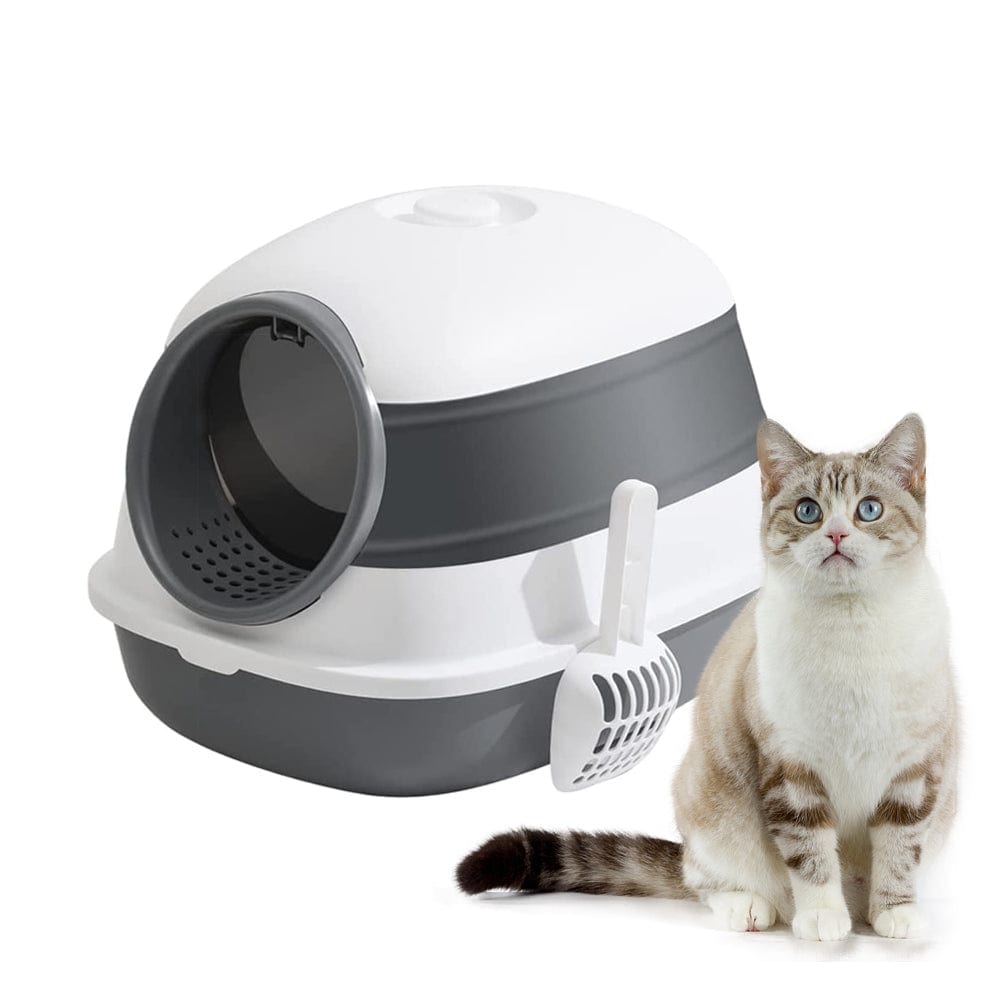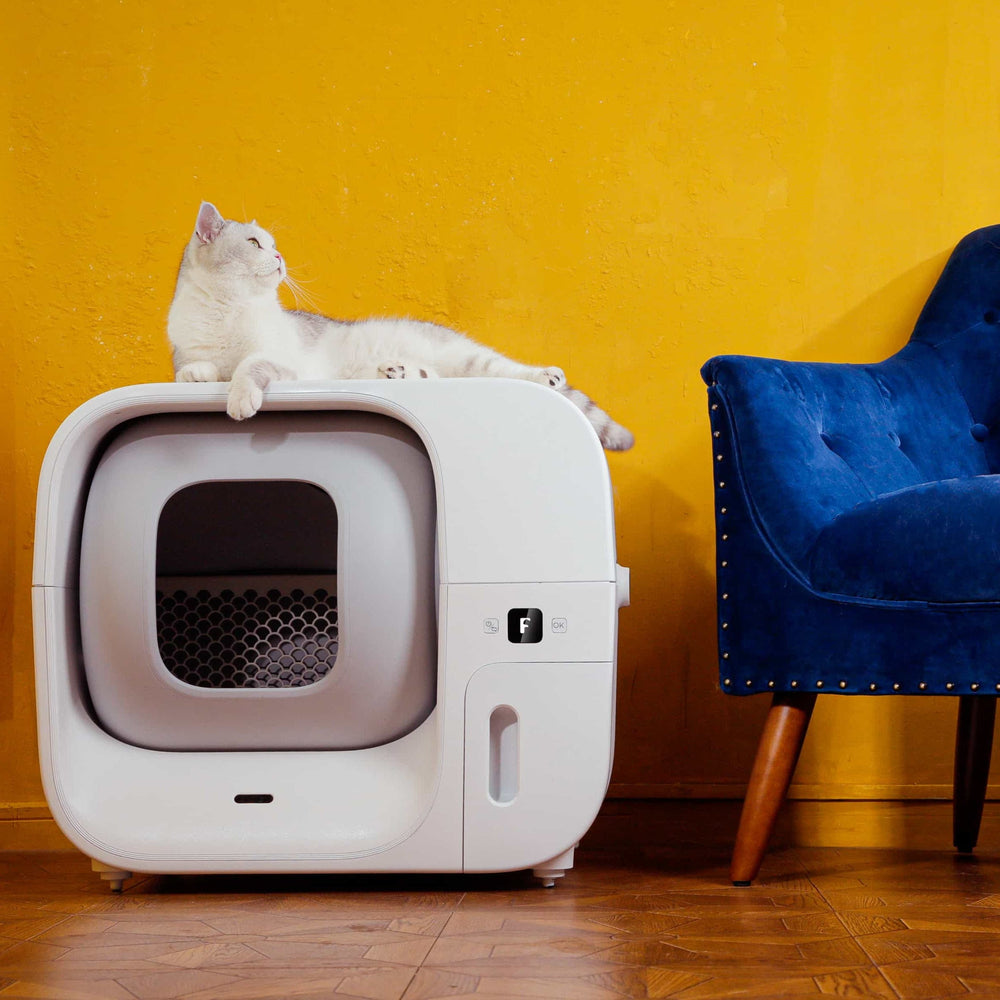Why Cats Poop Outside Litter Box?

Every cat owner has experienced this perplexing dilemma--your cat has access to a clean and comfortable litter box but still prefers pooping outside it? Not only can this be frustrating but could be telling of its physical health or behavior- whether new to you or an old familiar companion; sudden shifts can be bewildering! So why do cats poop outside their litter boxes? Join us as we delve further into this puzzled topic while providing solutions.
1. Cats' Physical Health Issues
As with humans, a cat's bathroom habits may change when experiencing digestive discomfort or illness; using the litter box could aggravate discomfort caused by abdominal problems and cause it to worsen further. If a cat experiences these conditions it could opt out altogether to reduce pain by forgoing using its normal facilities like using litter.
Digestion Issues and Constipation
Cats' delicate digestive systems often make them reluctant to use the litter box; if your cat suddenly begins eliminating in other locations of your house instead, constipation could be to blame. Constipation makes urination painfully uncomfortable for cats, prompting them to seek more comfortable places outside it to relieve themselves. In such instances, seeing your vet for evaluation and treatment would likely help your feline get back to its previous self.
Urinary Tract Infection (UTI)
Urinary tract infections often display unusual litter box behaviors such as difficulty urinating or frequent attempts at defecation, as well as any pain experienced when defecating, which could prompt them to avoid the litter box altogether. Other indicators could be frequent licking around the genital area, blood in urine output or changes in urinary frequency patterns.
Intestinal Parasites
Intestinal parasites such as roundworms and hookworms can wreak havoc with your cat's digestive system and alter his toilet habits significantly, particularly if their deworming treatments haven't been up to date. These issues tend to surface more commonly among households where cats don't receive frequent deworming treatments.
2. Psychological and Behavioral Issues in Cats
Psychological health concerns and behavioral habits of your cat can also influence its willingness to use the litter box, so any sudden environmental shifts that cause anxiety could prompt unexpected behavior from it. If these occur suddenly or are too significant for it to adjust to, unusual or distressful responses from it could manifest themselves through strange or odd behavior.
Litter Box Cleanliness
Cats can be picky about their environment. If your litter box is left dirty for extended periods, or lacks suitable litter, your cat may become dissatisfied and stop using it, forcing it elsewhere for relief. Ensure to clean daily and change out litter periodically in order to minimize this potential issue.
Litter Box Location
It is of vital importance that the litter box be placed in an ideal environment; otherwise your cat might choose not to use it due to noise, distance or inconvenient location. Likewise, having multiple cats living together could result in territorial disputes that make some less willing than others to use the box regularly - particularly where one feline may dominate over its use by all members.
Psychological Stress and Anxiety
Changes to their environment or new members in their household such as new pets or people can stress cats out, leading them to stop using the litter box and relieve themselves elsewhere - an often seen behavior among cats that need time adjusting to new situations or changes.
3. Adherence and Training of Litter Box Habits
Some cats develop bad bathroom habits from an early age due to improper litter box training or lack of guidance; when this occurs, adapting their bathroom habits is much harder.
Improper Training
If your cat was improperly taught how to use its litter box as a kitten or was forced into it when dirty, negative associations with its use could develop and your cat might avoid using it altogether. A gradual behavior correction plan and reward system should help address this problem effectively.
Picking Out the Appropriate Litter
Cats have their own preferences when it comes to litter type; while some prefer fine particles while others may like coarser granules. By picking a litter that matches up to what your feline likes best, you're less likely to run into issues where your cat avoids using its litter box altogether due to disliking its texture.
4. Solutions
If your cat is peeing outside the litter box, here are several steps you can take to address this problem:
Regularly Clean the Litter Box
To maintain an inviting litter box environment for your cat and prevent her from going elsewhere to relieve herself, keep its surface as clean as possible by scooping and changing out litter regularly. A well-kept litter box will encourage her to use it while discouraging other forms of relief from being sought out elsewhere.
Examine Your Cat's Health
If the problem continues, take your cat in for an examination with your veterinarian immediately - constipation, urinary tract infections or intestinal parasites must all be dealt with quickly to reduce discomfort for both parties involved.
Reduce Your Cat's Stress
Create an ideal living environment for your feline; ensure it is peaceful, secure, and quiet. Help it adjust gradually rather than all at once when new members join the family or new pets are introduced into its world.
Reposition the Litter Box
To maximize cat welfare and ensure they feel safe using it, select an area without high traffic or noise where your litter box will feel secure for maximum use. Cats prefer using boxes in more remote places without much footfall passing nearby.
Install More Litter Boxes
If you own multiple cats, be sure to provide enough litter boxes so each feline has one as well as one extra; "the number of cats + 1" is often recommended so every feline has enough room to use their bathroom break without interference from others.
Conclusion
Cats who eliminate outside their litter boxes is more than an annoying habit--it may indicate physical or psychological health problems that need attention. By closely observing and checking on your cat's behavior, health needs, environment conditions, and maintaining its litter box accordingly, most instances can be resolved successfully with care and patience from you and their owners. Reestablishing proper bathroom habits should help your feline return to leading a happy, healthy lifestyle once more!

